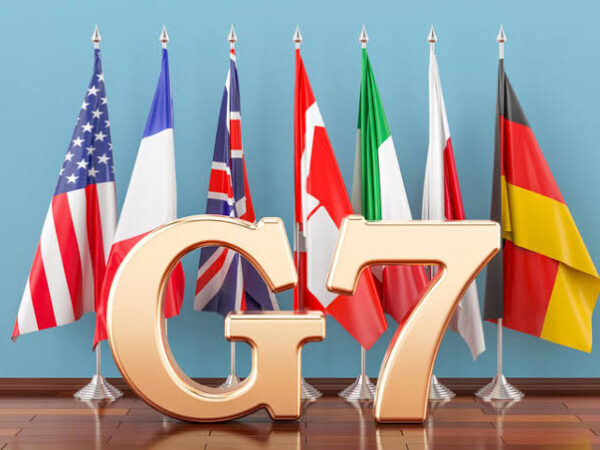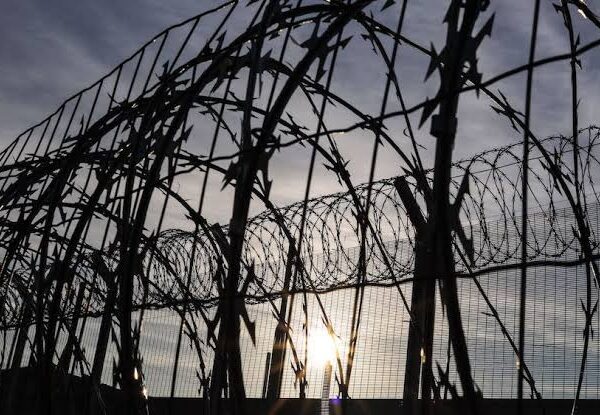By Lolia EtomiBA, GDL, LLB, BL, MA, (CANTAB)
The tragic news broke on Monday, April 12, 2021, about the brutal murder of Nigerian lawyer, Adaeze Ikpeama and the unborn child she was carrying, by her murderous, abusive husband, Anthony Ikpeama. This man targeted his wife’s pregnant belly, punching it repeatedly until she fell into a coma. After she was rescued and taken to a hospital, he tracked her down and removed her oxygen mask while she was comatose, causing her to die from cardiac arrest. This is a devastating story, and sadly, not a unique one. Already high incidents of domestic violence, have reason globally over the past year during the pandemic, as so many victims and survivors have been forced into isolation with their abusers. Yet, upon this news breaking publicly, to whom was most of the outrage and criticism directed towards? To the husband who spent years torturing and abusing his wife? No. To the father who murdered his child and subjected his children to uncertain futures by murdering their mother, before running away to hide? No. To the police force that failed both this woman and the public, by granting the murderer bail after the incident. No.
All the responses have blamed the woman. Correction: the deceased woman. It is an indictment on us as individuals and on society as a whole, when the misogyny is so ingrained within us, that we feel our energy is better directed at women who have suffered from violence and all the ways they could have avoided being killed, rather than the men who perpetrate this violence. The overarching questions that have been asked repeatedly, often with a worryingly condescending, unempathetic, gently scolding tone has been:
“Why didn’t she just leave?”
“What makes a woman accept to live with domestic violence in a marriage, knowing it may end her life any day?”
“What did she expect to take care of her children if she was killed by choosing not to leave?”
“Why do women care too much about public image? Instead of her to save herself and her children.”
“But… her father was a doctor. Surely, she had options?”
Disappointingly, a high volume of these comments have come from other women, as well as men. In response to the man himself and his actions, there seems to be a level of hopelessness, unacceptance and unwillingness to truly engage with the issue, culminating in broad, vague, impersonal statements such as:
“Wow. There is so much wickedness in this world.”
“Sad.”
“He may not be mentally stable.”
This shows an abysmal failure in our priorities as a whole. This shows we have almost accepted domestic violence and homicide as a neutral fact of life, so in incidences where it occurs, we should only focus on what we think we can control- the woman, her personal autonomy and actions.
To answer the questions above, recognising that this answer will barely scratch the surface of the complexities and difficulties faced in such situations:
It is not simply a matter of choice. There is very little support for single women in Nigeria, especially divorcées. This is something often acknowledged in light social discourse, almost as though it is a little cultural “quirk” that does not have serious ramifications for women who suddenly find themselves faced with escaping on their own. In this same Nigeria where single women are often given a hard time, if not barred, from renting one-bedroom apartments from landlords, due to the insinuation that they must be prostitutes (also, do prostitutes not deserve shelter, same as the often-married men paying for their services? But that is a topic for another day.) There is also a wide gender pay gap in the country that makes it less feasible for women who have children and have come from a one- or two-income household to stand on their own two feet. There is limited access to our already poor public/free education, and it is safe to say that if the children go uneducated or are subjected to a drastically lowered standard of living, the same mother that we are so critical of, would still be blamed. Not to mention the cultural, familial and religious pressure in Africa that means that women are often encouraged to forgive/pray on it and not to leave by their very own support system. We often shame and pressure these same women into marriage in the first place by portraying it as a personal failing should they opt-out of the whole institution. In many cases, women are not granted divorces, legally, much less, supported socially. Yet, with no respect to their quality of life, no safeguards or provisions for their safety and wellbeing, we feel entitled enough to suggest that this woman, and others who have suffered a similar fate, chose death over life.
The deceased’s father being a doctor has no bearing on this. He may have money, but there are many men in Nigeria with money who truly believe a man has the biblical, oral and legal right to “discipline” his wife, like she is a child. Nobody likes suffering and i’m sure she did not choose to die. The fact that the man went so far and was that evil shows what a dire situation she was trapped in. It is also important not to underestimate the psychological impact of fear and trauma. Often these men have threatened the women, making them fearful for their lives if they choose to leave. Even in situations where you are not physically trapped, one can still be psychologically trapped or paralyzed due to post-traumatic stress disorder (PTSD) from gaslighting, emotional and physical abuse. This is a scientific fact. These struggles take a mental, physical and emotional toll, which is why Lenore Walker, EdD, founder of the Domestic Violence Institute, coined the term “Battered Woman Syndrome” decades ago. It is a psychological recognised subcategory of PTSD that has been recognised as legally valid defence in numerous countries. It is time Nigeria and other African countries followed suit.
There have been many cases where it is after leaving and angering said men, that the women are tracked down and killed. In this situation, she was killed and the murderer’s six-month-old foetus that she was carrying was not enough to deter him. She had good cause to be afraid. She was physically taken away and literally hunted by this man; followed to the hospital where he finished the job. In the world of an abuser, out of sight does not always mean out of mind. What we should be asking is:
Do we offer adequate protection and support for vulnerable women and children in this situation?
The answer is no. That is why AWLA exists, to help to attend to this gaping wound in our society, one that our social and economic mode of operation has deemed to be the norm. Ergo, it is not only unhelpful, but actively hurtful, to blame the women, the victims, in these situations. We place even more of a burden on them to be wiser or to “shine their eyes well”, as if their abuse or murder was due to some sort of failing on their part. If it were as easy as making a simple choice, many more would make it.
Furthermore, a domestic violence victim/survivor’s father being a doctor has no bearing on all this and it is a fallacy to believe that the professional respectability of one’s father is enough to shield or protect one from violence or abuse. It may help, but it is worth considering that perhaps a woman’s safety and stability should not be contingent on having a powerful man in her life who is able to financially protect her. He may have money, but there are many men in Nigeria with money who truly believe a man has the biblical, moral and legal right to “discipline” his wife, like she is a child. Nobody likes suffering and I am sure she did not choose to die.
Even when it all boils down to making choice, executing that choice is not always that easy or straightforward. I am currently working with a team that has been helping a woman make arrangements to leave an abusive marriage. She had been trying to leave for years with her small child and made numerous attempts in the past. In some situations, it was her family and her church who she went to for sanctuary that took her back to the man, under teachings of religion, forgiveness, duty and responsibility. Making the man apologise and promise to do better. Each failed attempt only served to anger him more. I only heard about her case because she had to go outside of her resources in a desperate attempt, and reached out to someone based overseas, whom she barely knew but who seemed like she might be sympathetic. That woman came to me and then I reached out to a children’s shelter coordinator. Even now, the logistics of moving her and getting her re-established are difficult. Much less if she did not have our support. Despite all we are doing, nothing feels like it is enough to give this woman a semblance of normalcy in her life any time soon. In many cases, it is attested to by loved ones, how many women who are killed due to domestic violence showed so much promised and hope and excitement in other facets of their lives. These are not masochistic women, who see a clear way out but just choose the path of struggling and dying instead.
In the case of Ikpeama, the fact that her abuser went so far and was determined to finish the job, shows what a dire situation she was trapped in. The key word being “trapped”. It is easy to scold “just leave” as the solution, but what happens to the women who leave and are still harassed, stalked and killed? To use a notable example: take for instance, the terrible situation that occurred in the life of multi-award winning, globally renowned performer, Jennifer Hudson. Hudson Jennifer Hudson is a public figure, with lots of money, powerful friends and a strong family support system (as far as we know). Yet, after her sister left her abusive ex-husband and had fully divorced him, that did not stop him from still tracking her down and killing her son, her brother and her mother, to punish her for leaving. When faced with an abuser with a single-minded determination to do harm and a myriad of unaddressed personal issues, combined with male entitlement, women can take all possible precautionary measures to protect themselves and may still be at risk. Of course, it goes without saying that anyone in a dangerous situation should be encouraged and helped to leave. However, it must be done from a position of care, sensitivity and practical help. In this situation, and in others like it, it is still victim blaming to belatedly speculate about what this dead woman (God rest her soul), could or should have done differently. Or to whisper about the foolishness or lack of priorities of a woman currently going through personal struggles we know very little about.
There is a duty of care that those of us who claim to support and protect women, whether on an individual or organisational level, must hold ourselves to. When operating in this world of social media, where bad news travels at the speed of light and the public is given multiple platforms to give their opinions on matters like this, however hurtful, harmful or untrue those opinions may be, we have a responsibility to not add to the narrative that centres it on the woman’s failings. We have a responsibility to not speculate or make assumptions based on the snippets of someone’s life that we hear after the fact. The question that is often asked, “what happens to the children?” is a good question. But why on earth is it being directed at the woman who is now dead and was unable to help herself, much less her children. Had she left with the children, would the man be barred from seeing them? Based on the evidence of previous similar cases, the answer is probably not. He would usually be granted the right to see his children and this has resulted in many cases where men kidnap their own children or use their superior financial position to emotionally blackmail the abused. Yet, should a woman choose to leave without the children, she is forever judged with the stigma of being a selfish or bad mother. Why do we conveniently forget these realities when it is time to criticise women for not making what we deem to be the exact perfect choice, when they should never have been put in a situation where they’d have to make that choice in the first place.
So, what about the children? In the aforementioned case, a quick look through social media platforms, from twitter to whatsapp groups, would confirm that we have not seen nearly the same level of criticism or analysis directed at Anthony Ikpeama, their father. Perhaps he should be the one bearing that responsibility? He should have thought of his before abusing and killing his wife, their mother.
These are the criticisms and questions that survivors face when dealing with their own abuse, from sexual to domestic violence, that shame them and make them not want to seek help or feel unsafe and uncomfortable in doing so. I understand that that may not be the intention of everyone who asks… but that is the impact, and if you truly care about making a difference, that should take precedence over your bewilderment and curiosity. We can help women with the practical means and resources to do what is needed to leave successfully. We can provide psychological and emotional support too. We have a lot of patriarchally ingrained societal and personal biases that we must all unlearn, women included.
The fact that we have to keep asking “I don’t understand-why didn’t they just leave?”, makes it clear that it is not that simple, or they would have. If we are privileged enough not to be able to relate to that, we must acknowledge our position of privilege and at the very least sympathise, if we are unable to empathise. It’s easy to feel like one would act differently in the same given circumstances. But Adaeze Ikpeama (Rest in Peace) is dead, and so are countless others who have suffered the same cruel fate. “Ah wickedness! Oh no!” when speaking of the man is not enough. Attributing the cruelty to some vague, unexplored, unconfirmed psychosis is not enough. We constantly focus on turning the blame and responsibility to our women and not to the men in positions of power who have failed them and that is simply not good enough. These women have been failed and as long as we keep choosing to focus on offering unsolicited opinions with our 20/20 hindsight, we are part of the problem. We need to be part of the solution.
Some may be left wondering, what then should we say or do? Where should our focus be? Good questions (finally). One question we should be asking is- why should they grant that kind of man bail? How are we speaking out and applying pressure to our judicial system, politicians and men to make it clear that this behaviour will no longer be tolerated?
Rather than telling women to “just walk away”, we should be asking ourselves, what can we do to ensure that women are empowered to walk away? We should focus on letting women know that they have options, that they can leave, reassuring them and seeing to it that they can and will be protected and supported if they do- regardless of who their father may or may not be, or what side of the poverty line they fall on. Rather than blaming Adaeze Ikpeama or any other domestic violence victim posthumously, we should be asking what are we going to do now to get justice, to help her children? This is where we should come in. This is what differentiates us from the external noise of people offering their unsolicited opinions on women in publicised situations of abused. We need to support organisations that help these women in the way we may not be able to as individuals. Organisations like the African Women Lawyer’s Association (AWLA) and the Feminist Coalition (FemCo.), and within these organisations, we need to ensure that the spaces created to protect women are not the same spaces that vilify, blame or question them for how they have handled being victimised. Society has failed these women. The legal system failed these women. The police failed these women, and for as long as we continue to allow this to happen without grappling with the difficult but necessary work that needs to be done, we are failing these women and children. We must now turn the lens of scrutiny on ourselves and focus on how we can do right by them and ourselves, rather than focusing on all the perceived, presumed wrongdoings of those who need our help.



